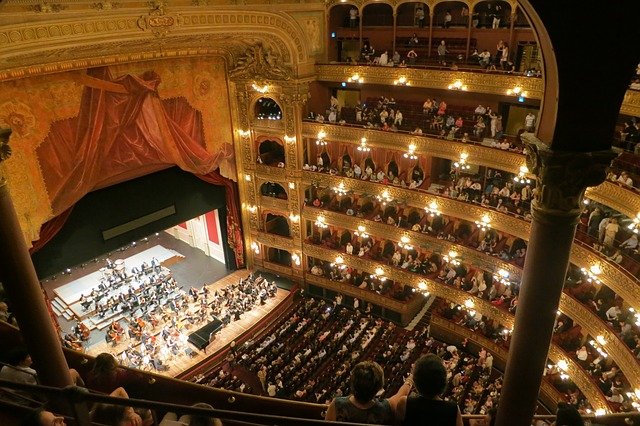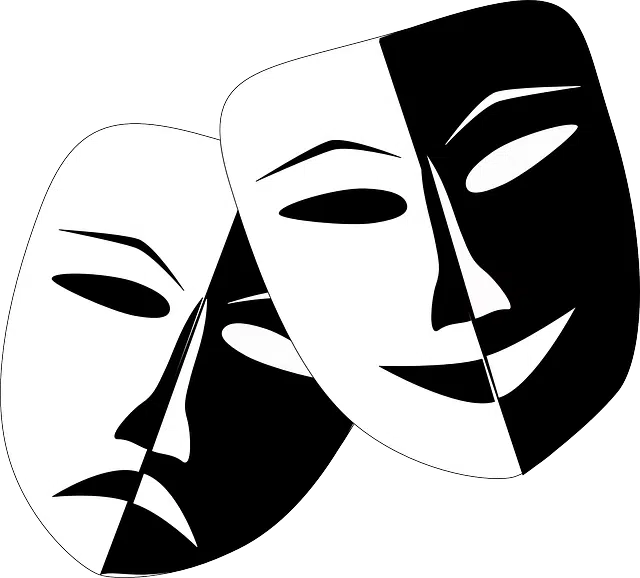
A theater can be a building.
The term theater comes from the Greek theatrón . This word can be translated as the space or place for contemplation .
Art, gender and building
Theater is part of the group of performing arts . Its development is linked to actors who represent a story before an audience. This art , therefore, combines various elements, such as gestures, speech, music, sounds and scenery.
On the other hand, the concept of theater is used to name the genre of literature that covers those texts designed for representation on stage, and also the building where the theatrical pieces are performed.
For example: "An Argentine author received an important award for a play in Slovenia" , "I suggest that tomorrow we go to the theater" , "My dream is to be a theater actor and make a living from my art" .
Essential elements of theater as a performing art
Theatrical practice is made up of a whole that cannot be divided. It is possible, however, to distinguish three basic elements, such as the text (what the actors say), the direction (the orders issued by the person responsible for the staging) and the acting (the process that leads an actor to assume the representation of a character). Other very important elements can be added to these components, such as costumes, sets or makeup.
It should be noted that those who write plays are known as playwrights , although the specific definition of the term refers to the writer of dramas or dramatic theater.
A historical tour
The historical origins of the theater are associated with the evolution of rituals related to hunting and the collection of fruits and foods typical of agriculture, which led to dramatic ceremonies through which the deities were worshiped. These rituals also established and reflected the spiritual precepts of the social group.
In any case, it was only in Classical Greece when this religious idea was brought to perfection. Theatrical performances were then created, where choreography, music, recitation and text formed an unmatched balance. Among the founders of theater as we conceive it today were the creators of tragedies, such as Aeschylus, Sophocles and Euripides, and of comedy, a genre that Aristophanes has always highlighted. At that time, both comedy and tragedy allowed the expression of political, social and religious ideas, necessary to understand the time in which we lived.

The masks of drama and comedy, a symbol of theater.
In Ancient Egypt (in the middle of the 2nd millennium BC ), for example, dramas with death and resurrection in Osiris were often performed. Even then, costumes and masks were used in dramatizations.
Starting in the 16th century, theater began to achieve great popularity throughout the world, with traveling carts that offered theatrical shows and amphitheaters created for the same purpose. In this period, the national theater emerged, which tried to show popular values and elements, highlighting the importance of things related to the homeland. The Spanish occupies an important place in this type of theater and the figures of Lope de Vega, Tirso de Molina and Calderón de la Barca stand out. Also in England and France, popular theater gained great importance where the works of Shakespeare and Corneille, Racine and Molière stood out, respectively.
In this way, theater is one of the artistic disciplines that can be identified with the time in which it lives. The theatrical works respond to the period in which they were created and allow us to gain in-depth knowledge of the social, cultural and political aspects that surrounded the life of their author.
Some essential names in the theater
Among the authors who have contributed the most to theater is William Shakespeare . He was born on April 25, 1564 in the United Kingdom and dedicated himself to writing plays and poetry , and he was also an actor . His life has been called into question on more than one occasion, especially his sexuality, his religious ideas and even the authorship of his works. In any case, there is no evidence to know if this rumor is true, so at the moment Shakespeare is one of the most prestigious playwrights. His works include "Hamlet", "Romeo and Juliet" and "Othello".
Lope de Vega is known as one of the most important Spanish theater authors on the peninsula. It is believed that he composed more than 1,400 comedies and a few tragedies. His works are characterized by an unusual originality in his time (he rejected the classical model imposed by the Greeks), offering a theater with a purely national character.
He also broke with the Aristotelian schemes that divided theater into comedy and tragedy and in his works he fused both styles, achieving an absolutely new and unique style. In his works, the honor of the town, the old people and the peasants is highlighted, to mention a few: "The best mayor", "Fuenteovejuna", "The villain in his corner", "The star of Seville" and "The Knight of "Olmedo."
Among the French playwrights, Jean Racine and Molière stand out.
Jean Racine was born in 1639 and quickly became famous with his tragedy "Andromache." He later wrote "Britanicus", "Mithridates" and "Phaedra", among others. It is said that with Racine tragedy with a classical style reached its greatest splendor, many critics mention him as the playwright par excellence. His works are characterized by presenting a clear and simple action where events are the inevitable consequence of the characters' passions.
Molière , for his part, was born in 1622 in France and was a man devoted to the theater with all his soul. He toured the country with a theater company, working as an author, actor and director for more than 15 years. He was characterized as a man with innate abilities for the theater, with an imagination and an inexhaustible source of occurrences, which allowed him to enjoy great popularity, keeping his audience always alert, awaiting new good theatrical performances, where they were assured of laughter and enjoyment behind ironic characters but without completely escaping realism. Among his most famous works are "The Misanthrope", "Don Juan" and "The Imaginary Sick Man". When it is mentioned, one speaks of Molière's universe, extremely rich and realistic , better than any author has ever been able to create.
